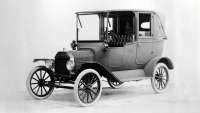What is the average weight of a car?
The average weight of a car is 2.05 tonnes.
That figure comes from averaging the weight of popular vehicle types spanning the Australian new car market.
The average weight of a small/compact SUV is about 1380kg, the average weight of a medium SUV is about 1630kg, the average weight of a large SUV is about 2000kg, the average weight of an upper large SUV is about 2580kg, the average weight of a ute is about 2140kg, and the average weight of a US pick-up is about 2600kg.
There are myriad factors that come into play when you're looking for a new or second-hand vehicle to buy, which will best suit you, your lifestyle and your wants and/or needs – and the weight of a car is right up there, in terms of importance.
So, 'how much does a car weigh?' should be one of the first questions you ask yourself.
Do you want or need your vehicle of choice to be light and nimble on its feet (rubber), easy to drive in cities and around town, and simple to park?
Or do you want/need considerable heft to your car? And these are crucial questions whether you're considering the weight of a small car or an SUV or a ute.
Another question you'll likely want to know the answer to is: what is the average weight of a car?
Read on.
How and why does the weight of a car differ?
Quick note: While some of us still think in tons or tonnes, the weight of a vehicle is usually listed in specification sheets as a kilogram (kg) figure, so, for the sake of uniformity, that's what we'll use in this yarn.
Right, on with the show.
Car weights may differ because of their different sizes, the materials used, production processes involved, and the actual intended purpose of each vehicle.
.jpg)
A heavy-duty work ute is going to be more than just a little bit heavier than a city-based hatchback, right?
And two vehicles that occupy the same section of the market – say, 4WD wagons – may also have different kerb weights*, for example, a seven-seat Mitsubishi Pajero Sport Exceed (2125kg, as listed by CarsGuide) is lighter than a seven-seat V6 Ford Everest Sport (2454kg, as listed by CarsGuide).
(* For this yarn, we're using the vehicle's manufacturer-listed kerb weight – the weight of a standard vehicle with a full tank of fuel, but no passengers or cargo onboard or accessories fitted [bullbar, roof racks, etc] – as our reference point.)
But, generally speaking, vehicles within the same realm – i.e. small cars, SUVs, utes, pick-ups – will have similar weights to each other – within 50kg of each other – although there may be an outlier or two that straddle two categories of car, or at the very least blur the lines between two categories.
Is there an advantage to having a heavy or light car?
The main advantage of having a light car (hatchback, etc) is its manoeuvrability. If it's light, it's small and a small vehicle makes for easier steering around town, through busy city streets and, more importantly, easier parking.
The main advantage of having a heavy car (large SUV, etc) is that its weight or size tends to signify that it is better suited to transporting more people and more cargo at one time than a vehicle that is lighter and smaller.
Also, the bigger and heavier a vehicle, the more robust it is.
.jpg)
What is the average weight of a car in kg?
In case you missed it earlier, please note, when I mention a vehicle's weight in this yarn, I'm referring to a vehicle's manufacturer-listed kerb weight – the weight of a vehicle with a full tank of fuel, but no passengers or cargo onboard.
Sometimes carmakers list tare weight* rather than kerb weight and if that's the case, I'll make sure that's noted. (* The weight of an empty standard vehicle with all fluids - oils, coolants - onboard but only 10 litres of fuel in the tank.)
The Federal Chamber of Automotive Industries (FCAI) classifies vehicle types based on their footprint (defined as length [mm] x width [mm], rounded).
.jpg)
So, what is the average car weight?
Micro, light or small cars* – we're talking about vehicles such as Kia Picanto, Suzuki Ignis, Toyota Yaris, Hyundai Kona and the like.
(* Micro: "Hatch, sedan or wagon with a footprint < 6300mm"; Light: "Hatch, sedan or wagon with a footprint range 6301-7500mm"; or Small: "Hatch, sedan or wagon with a footprint range 7501-8300mm", according to the FCAI.)
The Picanto (S manual) is listed as having a tare weight of 993kg, according to our weight experts here at CarsGuide.
At the heavier end of the market, is the Kia Seltos, really a small SUV, and it tops out at 1495kg (in GT-Line AWD guise).
But the average small car weight is around the 1200kg mark. Don't agree with me? That's great – have your say in the comments section below.
.jpg)
The average weight of a car in kg is about 1900kg – that's taking commercially available passenger cars into account. The average weight of a large car (a hatch, sedan or wagon with a FCAI-listed footprint range 9001-9500mm) is closer to 2000kg.
Large SUVs (with an FCAI-listed footprint of between 8801mm and 9800mm) can carry up to seven people; upper large SUVs (with an FCAI-defined footprint bigger than 9801mm) are able to carry up to eight passengers.
The average weight of a large SUV is drawing near to the 2500kg mark, and upper large SUVs can be as heavy as 2800kg (the Nissan Patrol).
Utes are classified as light trucks, which are "Vehicles designed principally for commercial but may include designs intended for non-commercial applications".
They're available as two-wheel drive (4x2) or four-wheel drive (4x4) vehicles, and as a cab chassis or with a tub at the rear.
.webp)
These vehicles can legally carry up to five people in the cabin, depending on the body type, and have a FCAI-defined footprint of between 9001mm and 9501mm.
The average weight of a dual-cab ute is around the 2100kg mark, but some variants top 2300kg (Ford Ranger) without any accessories onboard.
Pick-ups, such as the likes of the Ram 1500, the Ram 2500, the Chevrolet Silverado, the Ford F-150 etc, are basically utes on steroids.
These pick-up trucks are closer to 3000kg than 2000kg in kerb weight, and have an average weight somewhere in the vicinity of 2600kg.
How to find the specific weight of a particular vehicle
Go to the menu bar at the top of this CarsGuide page, and hit the 'Pricing and Specs' tab, and, from there, follow your instincts.
Feel free to also go to the appropriate carmaker's website and download the specification sheet relevant to your particular choice of vehicle.





.jpg)
.jpg)



.jpg)
.jpg)

.jpg)

.jpg)


.jpg)



.jpg)




